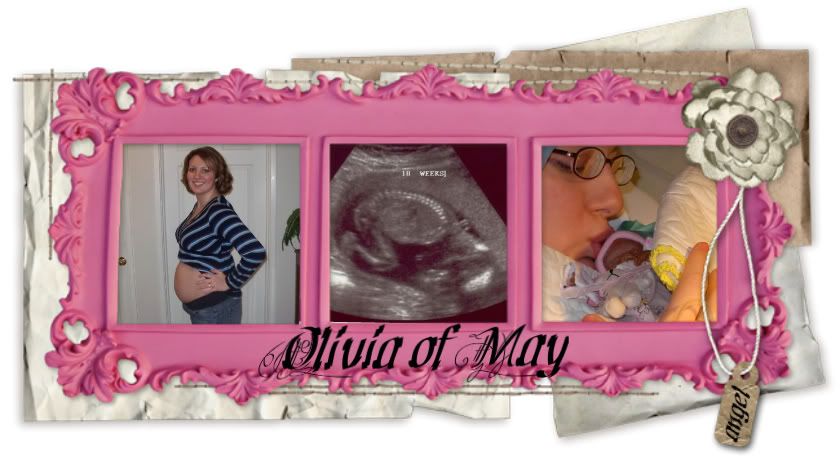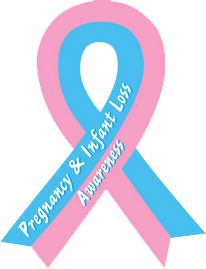The Mission of Share -Pregnancy and Infant Loss Support, Inc. is to serve those whose lives are touched by the tragic death of a baby through early pregnancy loss, stillbirth or in the first few months of life.
The primary purpose is to provide support toward positive resolution of grief experienced at the time of or following the death of a baby. This support encompasses emotional, physical, spiritual and social healing, as well as sustaining the family unit.
The secondary purpose is to provide information, education, and resources on the needs and rights of bereaved parents and siblings. The objective is to aid those in the community including family, friends, and employers, member of the congregation, and caregivers and others in their supportive role.
Share is a non-denominational, not-for-profit (501c3) organization, providing support, comfort and hope. Additional information about Share can be obtained by contacting:
National Share Office
St. Joseph Health Center
300 First Capitol Drive
St. Charles, MO 63301-2893
Office Phone: 636-947-6164
Toll Free Phone: 800-821-6819
Fax: 636-947-7486
E-mail: share@nationalshareoffice.com
Website: http://www.nationalshareoffice.com/
Office Hours: Monday-Thursday 9:00 am – 4:00 pm Central Time
The primary purpose is to provide support toward positive resolution of grief experienced at the time of or following the death of a baby. This support encompasses emotional, physical, spiritual and social healing, as well as sustaining the family unit.
The secondary purpose is to provide information, education, and resources on the needs and rights of bereaved parents and siblings. The objective is to aid those in the community including family, friends, and employers, member of the congregation, and caregivers and others in their supportive role.
Share is a non-denominational, not-for-profit (501c3) organization, providing support, comfort and hope. Additional information about Share can be obtained by contacting:
National Share Office
St. Joseph Health Center
300 First Capitol Drive
St. Charles, MO 63301-2893
Office Phone: 636-947-6164
Toll Free Phone: 800-821-6819
Fax: 636-947-7486
E-mail: share@nationalshareoffice.com
Website: http://www.nationalshareoffice.com/
Office Hours: Monday-Thursday 9:00 am – 4:00 pm Central Time

Dear Friend:
Someone very special to you has just experienced the death of a precious child. This is an extremely difficult situation because most people never expect a child to die and after the initial grief, they do not know how to interact with the grieving parent. As a parent whose baby recently died, I would like to mention some things that might make the situation easier for you and the grieving parent:
1. Realize that saying “I’m sorry” at any time after a baby has died is never inappropriate or too late.
2. Understand that the length of time a baby is carried or the amount of time a child lives does not determine his/her value or the impact that the child has on the parents’ lives. To ignore what has happened in hopes that the grief will pass is to diminish the worth of a child that was loved from the time of the awareness of its existence, long before its birth.
3. Realize that just as no one can replace a mother who dies, a new baby cannot replace a child who has died. All children are individuals, conceived separately, born separately, and loved separately. It is no different with a child that dies before, during, or shortly after birth. A parent cannot and should not be expected to “save” the love they have for their dead child to give to the next child. The ability to create another baby is not a way to resurrect a dead child therefore, it should not be thought of as a complete comfort. Not only is it unfair to the dead child, but it makes the next child a substitute.
4. If you are uncomfortable about discussing the death of the child with the parents because you think they won’t want to talk about it, don’t shy away. Simply say something like “I just want you to know that I want to listen if you need to talk”. Call frequently to ask how the parent is adjusting. If you live close to the parents, take the initiative to get together for lunch or some sporting activity (offer frequently, but don’t force it). Let the parents set the pace but constantly show them that you are open and interested. It may be horrifying for you to hear some details of the death, but it is much worse for the parents to experience the trauma and then have to keep it to themselves because they know it will be hard on you. When they tell you how they feel, refrain from making judgments and setting timetables.
5. Realize that a child is still the product of the parents’ love and the joy of their lives. There is joy and pain. The joy doesn’t end when the child dies, and the pain doesn’t end as soon as the funeral is over and the cards are sent- accept both. Don’t try to take the pain away. Parents need to feel it, hard as it is to see their pain, they need to grieve.
6. If the child has a name, use it. Try to remember the parents with a note or a phone call on their first Mother’s Day or Father’s Day, as well as the baby’s predicted due date and the first year anniversary of the child’s birth and death (even the first few monthly anniversaries).
Finally, if I can convey one thing to you in hopes it will make a difference, it is this: please make an effort not to underestimate the depth of the pain, the length of the grief, and most importantly, the difference your support and involvement can make during this painful adjustment. There may not be any other time when you are needed more than now. If you distance yourself because you’re uncomfortable until you think a reasonable amount of time has passed, you may find a different kind of distance and hurt between yourself and the grieving parent. If you share the experience, everyone will come out of it stronger.
Praying that God will guide and strengthen you.
A Mother
National Share Office, St. Joseph Health Center, 300 First Capitol Drive, St. Charles, MO. 63301 - May 1999

TO OUR FAMILY & FRIENDS
OUR GRIEF EXPERIENCE SHARED
We want to share with you some of our feelings and how you can help and support us. We have suffered a tremendous loss, and we need to grieve. Even though this may be uncomfortable for others around us, it’s something we MUST do. We won’t be over this in a few weeks as most people expect. We will be able to adjust to the loss of our precious child if we are given the time needed to grieve. (Average intense grieving is 18-24 months). However, we will not be the same people we were before our loss.
We may need to talk about our baby, how much we loved our child and the details of our experience. Even though we may not have many memories we suffer from broken dreams. During this time we need others to be there and listen to us time and time again. This is the kindest thing a person can do for us. We do not want to forget our baby and we will need to mention him/her in the future. It would be appreciated if you would remember our baby, especially on difficult days such as anniversary days, birthdays, Christmas, and Mother’s and Father’s Day.
In our struggles with our grief, we may have difficulties with the following:
· Understanding our many emotions and feeling emotionally balanced.
· Coping with feelings of guilt, anger and jealousy.
· Dealing with normal daily functions due to lack of energy.
· Deciding what to do with our baby’s belongings.
· Coping with the individuality of our grief as a family and as a couple.
· Sharing family celebrations.
· Seeing babies/children that are the same age our child would have been.
· Needing to make major decisions such as subsequent pregnancies, moving, job changes, etc.
· Visiting the cemetery and purchasing a tombstone.
· Remembering our baby in special ways that are acceptable.
· Feeling different and subsequently feeling isolated.
· Dealing with physical symptoms that arise due to grieving.
Dealing with these many emotions takes a lot of courage and tedious work. It is worth it so we can have peace of mind and a physical well being.
Many of us will attend support group meetings. Support groups are not for weaklings. The meetings are a safe place where we can share our feelings and love for our baby. Others who have been through similar experiences validate our feelings. These meetings give us comfort and hope for our future.
If we sound a little selfish, please understand. Only after we are able to adjust and experience the journey of grief can we reach out and help others. One day we will be able to live life in a fuller manner.
We try not to criticize others. Before our baby died, we didn’t understand the full impact this loss had. We want to share this painful experience with you so others can understand our need for support. No one will be able to take our pain away, but perhaps they can be there and listen.
National Share Office, St. Joseph Health Center, 300 First Capitol Drive, St. Charles, MO 63301 - Catherine Lammert, May 1999

SUPPORTING A GRIEVING FAMILY
How to Help:
1. Be supportive-Visit or call to say, "I care and want to help."
2. Treat the bereaved couple equally. Men need as much support as women.
3. Be available. Parents need direct help providing a meal, doing errands, and baby-sitting their other children.
4. Allow the parents to talk about their child; ask but don’t pry.
5. Learn about the grieving process. There are many books available.
6. Don't be afraid of reminding the parents about the child. They have never forgotten. Letting them know you remember is comforting.
7. Be liberal with touching a grieving parent. They often have a need for contact.
DO Say:
1. I'm sorry.
2. I'm so sad for your loss.
3. I know this must be terribly hard for you.
4. How are you managing all of this?
5. What can I do for you?
6. I'm here, and I want to listen.
7. Talk as long as you want. I have plenty of time.
DON’T Say:
1. It's all happened for the best.
2. You're young. You can have others.
3. Now you'll have an angel in heaven.
4. You're better off having this happen now, before you knew the baby.
5. This was God's way of saying something was wrong.
6. You should feel lucky that you are alive.
7. Forget it. Put it behind you and get on with your life.
8. I understand. (If you have not had a similar experience)
National Share Office, St. Joseph Health Center, 300 First Capitol Drive, St. Charles, MO. 63301 Catherine Lammert, National Share Office, May 1999

Typical Behaviors of Grief
1. Expressed frustration
a. Direct – could not see/hold the baby.
b. Indirect – picking clothing and other signs of restlessness and insomnia.
2. Bizarre searching
a. Playing with doll
b. Hearing the baby cry from the grave
c. Empty aching arms
i. Reaches intensity within 2-4 months
3. Preoccupation with experience
A. How they were treated during prenatal and delivery experience
4. Disorganized
a. Unable to accomplish ordinary activities
5. Residual anger
a. Anger focuses on spouse
b. Refusal to talk about the baby
c. Possible hostility toward to deceased
Signs of Normal Grief
1. Sighing, tightness of throat
2. Dullness of perception
3. Volatile emotions
a. A marked change in behavior or taking on the behavior of the deceased
b. Those who don’t cry need more attention
c. Feelings of guilt
d. Aloof – removed or distanced physically or emotionally
Reprinted with permission: National Share Office, St. Joseph Health Center, 300 First Capitol Drive, St. Charles, MO 63301 - May 1999



















































No comments:
Post a Comment